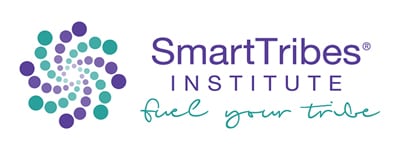I Stalked Steve Jobs (And How To Get A Meeting With ANY VIP)
November 19, 2011
How Change Fails: CEOs Focus On Symptoms NOT The System
December 11, 2011Are your team members highly accountable?
Do they have a “Thank God It’s Monday” attitude?
Do they take tons of initiative?
If not, you’ve likely got Crushed Culture.
It’s a disease. And it’s going to become an epidemic if we don’t do something about it. Evidence: three companies I used to love now have Crushed Culture: Lenscrafters, Hilton hotels, and even (gasp) JetBlue.
It’s spreading.
According to the recent Gallup poll on employee engagement:
“Seventy-one percent of American workers are ‘not engaged’ or ‘actively disengaged’ in their work, meaning they are emotionally disconnected from their workplaces and are less likely to be productive. This trend remained relatively stable throughout 2011.”
What? This trend has remained relatively stable. Wow.
Does this concern you?
A lot?
And don’t think Crushed Culture symptoms are in the rank and file alone.
“Our team is full of order takers.”
“Why do we have so little accountability around here?”
“We’re going through a lot of change. Why don’t our people embrace it?”
These are but a few of the most common complaints and concerns I often hear from the C Suite. And I’ve been listening for a long time—almost 30 years. Employee disengagement, or Crushed Culture, has spread to the C Suite too.
Four Steps to Cure Crushed Culture:
1) Emotional Equity > Financial Equity. We all know what financial equity is—money—stock, comp packages, golden handcuffs. All the things we think will make people loyal to a company and keep them engaged. But this no longer works, as Gallup proves, and especially with Gen Yers and Millenials. Nope, they, like the rest of us, want to feel like we’re part of something bigger, like we’re on a glorious mission, like our work matters, like we’ll leave the world just a little better than we found it, and we want to achieve that (in part) during our work hours.
Here’s the formula:
Put energy into someone by explaining why your company is doing what it is doing, what your mission/vision/values really mean, mentor them, talk challenges out with them, pay attention to them and you’ll start to build emotional equity. That equity will now give you access to their heart, mind, Rolodex, idle thought cycles. Now they’re thinking about how to help the company innovate better, solve a specific problem, etc. as they shower and commute and whatever. That access to a person’s additional resources will enable you to influence outcomes more effectively. Now you have a shared cause, you’re on the same team, you’re safe and you belong together. It’s emotional.
2) Stop The Whining. The C suite, management, staff, everyone needs to get off what I call the Tension Triangle. This is where people bounce from victim to rescuer to persecutor. Stephen Karpman, MD, first created this as the Dreaded Drama Triangle or DDT. The DDT is comprised of three roles: Victim (the role where someone is “doing” something to them), Rescuer (who tries to remove the Victim’s suffering, often without being asked), and Persecutor (which the Victim blames for their suffering, yet the Persecutor is often feeling victimized too). David Emerald has extended this triangle, and I have extended it further. The net-net is Victims are complaining because they want something—so we help them shift to be an Outcome Creator. The Rescuer is just trying to end the suffering, so we help them become an Insight Creator by asking the right questions so the Victim can get what they need by themselves. The Persecutor is usually frustrated by trying to make things happen, so we help them become an Action Creator. Once everyone is trained in shifting their most prevalent role to a healthy alternative the whining ends. Now that’s empowerment.
Victim becomes Outcome Creator
Rescuer becomes Insight Creator
Persecutor becomes Action Creator

3) Invest ONLY for ROI. Training your team is expensive. So only do what matters. Every person in your company needs to be trained in Problem to Outcome (see Stop Whining above), in Leadership Effectiveness (so they become leaders in their own right), Influencing Outcomes and Others. Accountability/Communication/Execution. All of the above should be neuroscience-based to get far more bang for your buck. The above will cost you about $750-1,000 per person. If your people aren’t worth that amount, then embrace Crushed Culture. Because that’s the risk we’re talking about.
4) Career Path—or Exit Strategy
Dave Peacock, President of Anheuser-Busch recently shared their refreshing approach to team member reviews. Each team member knows exactly where they stand based on the number + letter they receive through their on-going review process. If you’re a 4A you are such a corporate asset that your boss is obligated to promote you in a year. 4Bs must be promoted within 2 years. 3As need to be tested in a different role before they’re moved up. 3B means you’re in the right job at the right time. 2s are new in a position—it’s too early to judge. 1As are put on a recovery plan, 1Bs need to exit the company. We recommend to our clients that a team member should know their next 2 potential promotions, and what exactly they need to do to earn them. Are they loyal and engaged? Oh yes.
So the harsh reality is that we, the leaders, created Crushed Culture. Now we need to fix it. It’s what I’ll do to help:
1) For the next few blogs I’ll lay out the neuroscience processes you need to do to help cure your Crushed Culture in record time. Click the FOLLOW button on this page so you don’t miss any.
2) I’ll give a 45 minute strategy session (gratis, of course) to 3 of you. We’ll work on curing your Crushed Culture. Click here to request a session.
Together we’ll cure Crushed Culture… one company at a time.
Christine Comaford was once a former serial entrepreneur, venture capitalist, and Buddhist monk. Today she combines the latest neuroscience techniques with business strategy to achieve remarkable results at rapid growth companies. She’s also the author of the NY Times bestseller “Rules for Renegades.”





